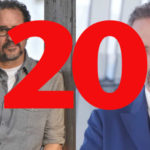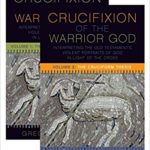We run our website the way we wished the whole internet worked: we provide high quality original content with no ads. We are funded solely by your direct support. Please consider supporting this project.
Eckhart Tolle’s “A New Earth”: A Review
A New Earth, written by Eckhart Tolle, has become an overnight sensation thanks largely to Oprah’s enthusiastic endorsement. In fact, Oprah hosted a 10-week on-line course conducted by Tolle that included over two million students. Given all the publicity this generated, I decided I needed to give the book a read. Here’s my review.
Insights in A New Earth
I have to start by saying I found nothing in this book that hasn’t been said many times before by others who espouse various forms of eastern spirituality. More specifically, it struck me that many (if not most) of Tolle’s ideas are simply restatements of ideas espoused by J. Krishnamurti — though, curiously enough, Tolle never explicitly refers to him. At the same time, Tolle is a much better mass communicator than Krishnamurti (or any other promoter of eastern spirituality I’ve ever read). He has an ability to package esoteric ideas in ways that westerners can easily understand and absorb, and this undoubtedly goes a long way in explaining Tolle’s success.
As was true whenever I’ve read Krishnamurti, I found some aspects of Tolle’s book very helpful. For example, his analysis of the false and futile ways the ego tries to give itself worth is superb. His insights on judgment, the origins of violence and the causes of relational dysfunction were wonderful. His strong emphasis on “living in the present moment” is full of wisdom. And he is brilliant at helping readers identify ways in which they get stuck. In light of this, I can easily understand why many readers experience “aha” moments as they read this material. Tolle masterfully names issues all of us wrestle with, usually without knowing it. One can’t help but feel like Tolle is telling their own story.
But this is also why this book deeply concerns me. For, while Tolle is a master at identifying the universal human problem, the solution he offers to address this problem is, from a Christian perspective, as misguided as any proposed solution could be. I’ll give three examples.
Individuality, Relations and Love as Maya
First, Tolle espouses a rather typical eastern metaphysics in which the true “you” is not the “you” that is distinct from other people, but the (alleged) “you” that is one with the universe. To grasp this, imagine waves on an ocean. Your individual ego is one such wave, but the true “you” in the eastern religious worldview is the ocean itself – as it is for me and every other “wave.” The wave -”you” is limited and temporary, but the ocean-”you” is unlimited and eternal. According to Tolle and the eastern worldview in general, every problem we have, individually and as a collective whole, is the result our tendency to identify with, cling to and fight for the limited, transitory wave instead of with the unlimited, eternal ocean.
In fact, for Tolle, as for most who espouse eastern spirituality, our individuality is something of an illusion – Maya, as the Hindus call it (9 — all page numbers refer to A New Earth). What is ultimately real is our essence, which is the infinite ocean, the“Source” and (yes) “God” (see e.g. 26). If we can remain consciously aware of our essential oneness with all things on a moment-by-moment basis, we will find that the perpetual striving and anxiety that attaches to our individual ego disappears. We will thus be free, fulfilled, peaceful, etc… The three words that are “the secret of all success and happiness,” according to Tolle, are “One With Life” (115). Instead of living with an ego-centered awareness of how we (as individuals) are distinct from all other things, we must cultivate an ego-free awareness of how we are one with all things on a moment-by-moment basis. And when this happens, there is no longer an awareness of a “we” that is distinct from others at all.
This eastern worldview that Tolle espouses fundamentally contradicts the biblical worldview. It’s important we understand why this is so. For Tolle, the world of distinct things and distinct people is only quasi-real. Ultimate reality is one, “formless,” “pure potentiality,” “pure awareness,” etc. This means that relationships are only quasi-real, since relationships must take place between distinct persons. And this means that love is only quasi-real, since love is obviously a relationship.
This is why Tolle says that the biblical teaching that “God is love” is “not absolutely correct.” The truth, according to Tolle, is that…
God is the One Life and beyond the countless forms of life. Love implies duality: lover and beloved, subject and object. So love is the recognition of oneness in the world of duality (106).
In other words, since duality is not an ultimate reality, love is not an ultimate reality – which is why God can’t be said to be love. Love is rather a means to an end –the end being the recognition that you and all other people are not really distinct. Love thus helps us transcend the world of duality and enter “the light of consciousness itself.” “To love,” Tolle says, “is to recognize yourself in another” (105, emphasis added). For, ultimately, there is no “other” to love. There is only the self.
By contrast – sharp contrast – the biblical worldview affirms that the teaching that “God is love” is not only “absolutely correct” but is the most important and correct truth there is (1 Jn 4:8). In the biblical worldview, God is an eternal, perfect, loving relationship. As Father, Son and Holy Spirit, God is eternal, perfect love shared between a plurality of “persons.” Love and plurality are not pen-ultimate realities: they are ultimate reality!
Not only this, but out of perfect love, God created a world filled with ultimately real individuals with the hope that they’d share in and reflect the joy and ecstasy of his eternal, perfect, and ultimately real love. The goal of life, therefore, is not to dissolve all individuality into oneness but to eternally affirm individuality in loving relationship with all other individuals and with God. The goal is not to realize you are God, but to be eternally related to God with a love that participates in the perfect love that God eternally is.
This fundamental difference is clearly manifested in the way Tolle teaches people to “stay awake” and “live in the now,” in contrast to the way Christians such as Brother Lawrence (The Practice of the Presence of God) and Frank Laubach have helped people “stay awake.” Tolle encourages people to cultivate an on-going awareness of their essential oneness with life. The goal is to transcend the ego and lose any distinct awareness of yourself. By contrast, Brother Lawrence and Frank Laubach encourage people to cultivate an on-going awareness of the presence of God and to surrender to this presence on a moment-by-moment basis. Tolle aims at experiencing one’s own divine “I AM” on a moment-by-moment basis. Brother Lawrence and Frank Laubach aim at experiencing a loving relationship with the I AM on a moment-by-moment basis.
Clearly, Tolle’s eastern worldview fundamentally contradicts the most important aspect of the biblical worldview.
Freedom From A Religious Belief System?
Second, there’s a profound inconsistency that pervades Tolle’s book (which, not coincidentally, I’ve also found in all of Krishnamurti’s writings). Both in his book and on the Oprah show, Tolle claims he is not promoting a “belief system” (17). This is why he and Oprah claim his book — and his course — is compatible with whatever belief system a person might already have. Whatever you believe, Oprah says, Tolle’s technique to become self-aware and live in the moment will make it better — “like seasoning on a meal,” she says. In fact, Tolle claims we are entering a new age in which we will witness the end “not only of all mythologies but also of ideologies and belief systems” (21). For, in keeping with Krishnamurti’s life-long teaching, Tolle believes that belief systems are ego-centered interpretations that we impose on reality and that therefore hinder our pure awareness of reality. To the extent that one attains pure awareness in the present moment, one transcends beliefs.
Ironically, every page of Tolle’s book contains beliefs – that is, interpretations of reality. For example, the belief that belief systems are ego-centered interpretations that we impose on reality is a belief. So too, when Tolle announces that the belief that “God is love” is incorrect, he is obviously announcing a particular (mistaken) belief.
Along the same lines, a couple of sentences after prophesying the eventual demise of all belief systems, Tolle announces:
If evil has any reality – and it is relative, not an absolute reality – this is its definition: complete identification with the forms – physical forms, thought forms, emotional forms (22).
Correct me if I’m wrong, but this seems to be a (mistaken) belief about the nature of evil.
In the very next sentence Tolle goes on to explain that the reason identifying with forms is “evil” is because it causes us to forget our “intrinsic oneness with every ‘other’ as well as with the Source” (22). This is yet another (mistaken) belief.
Several sentences following this, Tolle announces that when Jesus talks about “heaven” he is referring to “the inner realm of consciousness” (23). This is yet another belief — and one that anyone who understands Jesus’ words in their original first century Jewish milieu will easily identify as profoundly mistaken.
So too, when Tolle proclaims that “[a]ll religions are equally false and equally true, depending on how you use them” (he is apparently an expert on all of them) and that anyone who believes “only your religion is the truth” is “using it in the service of the ego” (70-71), he’s clearly espousing a religious belief — and note, one that he clearly believes is the only true one!
Finally, when Tolle repeatedly teaches that one should accept every experience as something that is good for them — for “life,” he claims, is helping their consciousness to evolve (e.g. 41, 57, etc.) — he’s espousing a particular religious dogma…one that I would suspect parents of kidnapped children as well as the kidnapped children themselves might find disagreeable.
I could go on, but enough has been said to demonstrate that Tolle’s claim that he is not promoting a “belief system” is far from true. As a matter of fact, he is promoting a particular religious worldview buttressed by a plethora of religious beliefs. What’s particular aggravating is that Tolle never supports these religious beliefs with evidence or argumentation. (How could he? He apparently isn’t even aware he’s propounding beliefs in the first place!) Tolle just announces these dogmas as though they were self-evident truths. While there are some aspects of this religious belief system that are consistent with Scripture and are even helpful, as I said above, its core is as antithetical to the Christian worldview as any religious belief system could be.
Tolle’s Teaching on Jesus and Christianity
Third, the belief system Tolle espouses is at its very worst when he starts talking about Jesus and Christianity. According to Tolle, Jesus, like the Buddha, was an “early flower” in the evolution of human consciousness whose message was misunderstood and distorted (6). For example, Tolle suggests (without proof) that Jesus’ message was distorted when people began to worship him as a god (15). If this is a distortion, it happened very early since its clear from the letters of the apostle Paul that Jesus’ followers started worshiping him several years after he lived! Where Tolle got his “inside information” about a non-distorted version of Jesus’ message that predates this he unfortunately does not tell.
Along the same lines, Tolle claims (incredibly!) that gnosticism and mysticism in the Christian tradition were movements that recovered the original insights of Jesus (16). The fact that all of the New Testament documents are thoroughly Jewish — not gnostic — and that we have no evidence of gnostic influenced Christianity until the second century (well after the New Testament documents were written) doesn’t seem to concern Tolle.
So too, Tolle claims that when Jesus said, “I am the way and the truth and the life,” he meant to say “[t]he very Being that you are is Truth” (71, emphasis added). He was speaking of the “I AM” that forms “the essence identity of every man and woman, every life-form in fact.” This is the same as our “Buddha nature” our “Atman” or “the indwelling God” (71). Good to know.
Not only this, but when Jesus told us to deny ourselves, he meant to say that we were to “[n]egate … the illusion of the self” (79). Similarly, when Jesus referred to “eternal life” he was actually referring to “the dimension of the formless within” you (81). And, most fantastically, when Jesus died on the cross he was giving us “an archetypal image” of how our evolving consciousness is “burning up” our “ego” (102).
A hundred more illustrations of Tolle’s remarkable pronouncements about Jesus and Christianity could be given, but I think you get the point. Two things are clear from all of this.
First, Tolle is promoting (without any supporting evidence or argumentation) an assortment of very particular religious beliefs about Jesus and Christianity that he clearly believes are the only true ones– in sharp contrast to all the wrong beliefs that Christians have embraced throughout history. Now, I honestly would have no problem with any of this if Tolle was simply upfront with what he was doing. If Tolle came clean and admitted, “Folks, I’m trying to sell you a religious belief system that contradicts Christianity in the most profound ways imaginable,” I’d applaud his effort and honesty! I’d think his alternative doctrines silly and without foundation, of course. But I’d respect the candor. Unfortunately, whether by intention or just lack of self-awareness, Tolle is not forthright about the anti-Christian religious beliefs he promotes.
Second, as is clear to anybody with even a cursory understanding of the original context in which Jesus’ lived and even a modicum of information about Church History, Tolle’s claims about Jesus and Christianity are demonstrably wrong. Indeed, a little sound exegesis (on the meaning of what Jesus taught) and historical research (on the early church) reveals his claims to be, frankly, comical. The only thing that is perhaps more comical is his apparent lack of awareness that he’s espousing an alternative set of religious dogmas in the first place — and this from a man whose whole agenda is about becoming self-aware!
I am left, then, with deep concerns about this book and with the fact that Oprah (who explicitly identifies herself as Christian) is so enthusiastically supporting it. Again, I’m not denying there are some very good insights in this book. Nor am I joining the rank of those who are castigating Oprah as the new pastor of a new, heretical, internet “mega-church” or “cult.” I believe both Oprah and Tolle mean well and are sincerely trying to help people improve their lives. But I am nonetheless very concerned that the masterful way Tolle identifies and diagnoses the struggles we all wrestle with will make readers more gullible in accepting the strongly anti-Christian religious belief system he’s intentionally or unintentionally slipping in the back door.
I would thus encourage anyone who wants to read this book to do so with a very critical eye (c.f. 2 Tim. 4:3-4; 2 Pet. 2:1).
Better yet, if you’re interesting in a Christ-centered way of learning how to live “in the present moment” — and we all should be — forget about Tolle and read Brother Lawrence and Frank Laubach’s Practicing His Presence and/or J. De Caussade’s The Sacrament of the Present Moment. Yes, live in the now! But do it in loving relationship with God rather than by believing you are God while trying to convince yourself you have transcended the confinement of beliefs in the process.
Category: General
Tags: Book Reviews, Reviews
Related Reading

Must We Deny Biblical Infallibility to “Disarm” Scripture? A Review of Derek Flood’s Disarming Scripture: Part 1
Image by e³°°° via Flickr Since I’ve been working on my own book dealing with the violent portraits of God in the Old Testament for the last eight and a half years, I was keenly interested in Derek Flood’s new book, Disarming Scripture: Cherry-Picking Liberals, Violence-Loving Conservatives, and Why We All Need To Learn to Read…

Part 20 (of 20) — Peterson’s Appeal
Assessing Peterson’s 12 Rules of Life Four months ago a young woman approached me after a church service, handed me 12 Rules of Life while saying, “You really needed to know what this guy is saying.” I’m so glad she did! To be frank, given the buzz I’d heard about Peterson throughout the previous year,…

Part 6 (of 15): Evolutionary Conservatism
Assessing Jordan Peterson’s 12 Rules for Life by Greg Boyd “If reality is that which selects, then what’s selected by that reality must in some sense be correct.” Evolutionary Wisdom As was true of Heraclitus and Lao Tzu, and as a number of domains of contemporary science have demonstrated over the last century, Peterson believes…

Reviewing the Reviews: Tom Belt (Part 1)
Tom Belt has written a four-part review of Crucifixion of the Warrior God on his blog An Open Orthodoxy. Parts 1 and 2 offer an overall fair and balanced summary of CWG, at least to the point that correcting misunderstandings would feel petty. In Part 3 Tom offers a critique of volume I, and this is what I’d like…

Podcast: What Are You Reading Now?
Greg discusses what he is reading now that Crucifixion of the Warrior God and CrossVision are completed (Links Below). http://traffic.libsyn.com/askgregboyd/Episode_0251.mp3 Books: The Training of KX12 and The Physics of Theism

Greg’s Review of Changing Your Mind by Victor Copan
Several months ago Victor Copan introduced himself to me at the end of a Woodland Hills Church service. He told me about his recently published book, Changing Your Mind. “I know you’re into spiritual disciplines and neuroscience,” he said, “so I suspect you might enjoy my book. It’s about the interface of these two topics.”…
